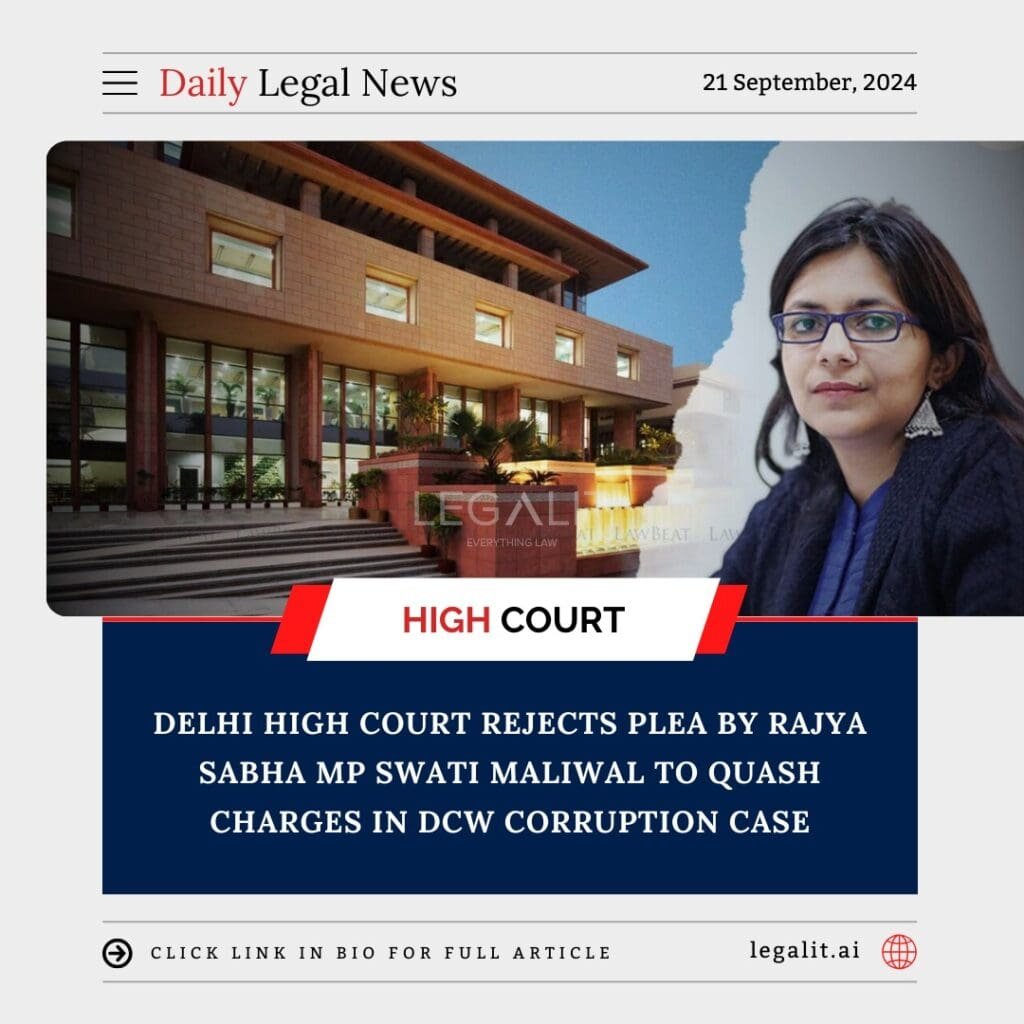
The Delhi High Court has dismissed a plea filed by Swati Maliwal, a member of the Rajya Sabha and former chairperson of the Delhi Commission for Women (DCW), seeking to quash the corruption charges against her in a case involving alleged financial irregularities during her tenure at the DCW.
Background of the Case
The allegations against Maliwal pertain to misuse of funds and irregularities in the utilization of resources allocated to the DCW. The case was initiated following a complaint that raised concerns about financial mismanagement and corruption within the organization during her leadership.
Court’s Ruling
- Rejection of Plea: The Delhi High Court ruled against Maliwal’s request to quash the charges, stating that there is sufficient prima facie evidence to proceed with the case. The court emphasized the importance of allowing the investigative process to unfold and the necessity of holding accountable those in positions of public trust.
- Legal Proceedings to Continue: The dismissal of the plea means that the legal proceedings against Maliwal will continue, allowing the prosecution to present its case in court. This decision is seen as a crucial step in ensuring accountability in public office.
- Importance of Transparency: The court underscored the significance of transparency and integrity in public service, particularly in roles that involve the management of public funds and resources.
Implications of the Ruling
- Impact on Political Career: This ruling could have significant implications for Maliwal’s political career, potentially affecting her standing and public perception amid ongoing legal challenges.
- Accountability in Public Office: The decision reinforces the judiciary’s role in holding public officials accountable for their actions, promoting a culture of accountability and ethical governance.
- Public Trust: By allowing the case to proceed, the court aims to uphold public trust in governmental institutions, ensuring that allegations of corruption are thoroughly investigated and adjudicated.
- Legal Precedent: This ruling may set a precedent for similar cases involving public officials, emphasizing that allegations of corruption will be taken seriously and investigated rigorously.
Conclusion
The Delhi High Court’s rejection of Swati Maliwal’s plea to quash charges in the DCW corruption case highlights the judiciary’s commitment to accountability in public office. As the case moves forward, it will be closely monitored for its implications on Maliwal’s political future and the broader discourse on corruption and transparency in governance. The ruling serves as a reminder of the legal system’s role in addressing allegations of misconduct among public officials, reinforcing the need for ethical standards in public service.